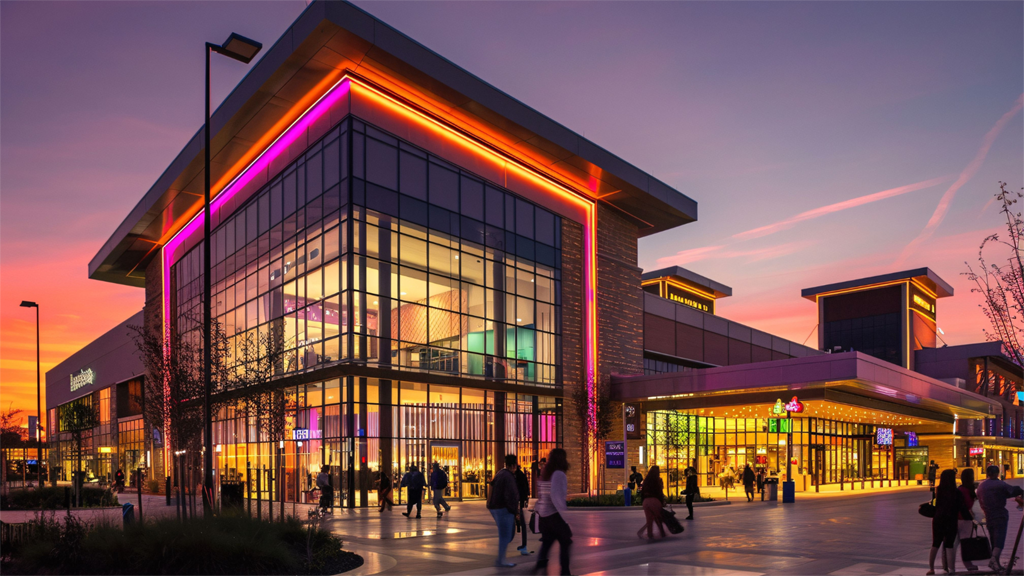Real estate markets are dynamic spaces that are perpetually fluctuating, owing to factors such as government policies, buyer sentiments, and the country’s economy. The Delhi-NCR real estate market has experienced remarkable growth over the past five years, especially in the unexpected recovery following COVID-19. Consequently, real estate developers are actively analysing trends that will shape the Delhi housing market in order to gain a competitive edge. Let’s take a look at these real estate trends that are expected to shape the market in the coming years.
Continued Demand Growth
Ongoing improvements in infrastructure, such as new transportation networks, roads, and public amenities, are significantly enhancing connectivity. Infrastructure improvement often leads to the creation of thriving business regions, increasing demand for office spaces alongside residential properties. With the emergence of several commercial and residential hotspots in recent years, such as the Dwarka Expressway, Noida Expressway, Golf Course Extension Road, and more, the Delhi-NCR real estate market has experienced an upward trajectory. Moreover, the upcoming Jewar Airport in Noida is expected to significantly boost the real estate sector.
Urban migration is another crucial factor driving demand in the Delhi housing market. As more people relocate to tier-1 cities in search of better employment opportunities, education, and quality of life, the demand for housing and office spaces has surged. Steadily increasing population adds another layer of demand in the real estate sector. Together, these factors are contributing to the rise of real estate. This demand will likely persist in the years ahead as the factors fueling it are expected to rise further.
Mixed-Use Developments

Offering a seamless blend of convenience and functionality, mixed-use developments are expected to become a rising trend in the Delhi-NCR real estate market. These developments provide the convenience of living, working, and leisure within a single, well-connected environment, which is especially attractive to the growing urban population. As the region continues to experience rapid urbanisation, mixed-use projects—incorporating residential, commercial, retail, and recreational spaces—are expected to be in high demand in future years.
Green Buildings

A recent report by NAREDCO suggests that the shift towards green buildings is expected to accelerate in the coming years. With sustainability becoming a priority for consumers and investors alike, developers are focusing on eco-friendly designs and materials. This trend is driven by a growing environmental consciousness.
Green buildings not only minimise ecological footprint but also enhance indoor air quality and occupant well-being, making them more appealing to buyers. As technological advancements and sustainable practices become integrated into construction and design, the Delhi-NCR real estate market is likely to see a significant increase in the demand for green buildings, shaping the future of urban development and improving the well-being of residents.
Furthermore, the implementation of green certifications like LEED (Leadership in Energy and Environmental Design) and IGBC (Indian Green Building Council) also ensures the authenticity of developers’ offerings.
Regulatory Changes
Over the past few years, governments have implemented various measures aimed at improving the real estate sector for both developers and consumers. Policies and certifications like RERA, LEEDS, and IGBC facilitate a more transparent, sustainable, and consumer-friendly real estate market in India. In the coming years, the introduction of more such policies and regulations that are aimed at furthering the growth of the real estate sector can be expected.
Additionally, as housing prices continue to rise, addressing affordability will also become crucial. Policymakers may introduce more initiatives aimed at increasing the supply of affordable housing.
Technological Integration

The real estate sector will increasingly embrace technology to streamline processes and enhance buyer experience. Digital platforms for property searches, virtual tours, and online transactions are expected to become the norm, making it easier for buyers to navigate the market. Additionally, smart home technologies will gain popularity as consumers seek convenience and energy efficiency.
Investment in Luxury Segment

The demand for luxury homes has surged due to a combination of factors – an increased need for larger living spaces, transparency in real estate owing to government policies, and a growing number of people entering the luxury affordability earning range. According to a recent study, luxury homes accounted for a significant share of total units sold across the top seven cities in India in the first quarter of 2024. This marks a threefold increase compared to the first quarter of 2019. As economic status shifts, more upper to middle-income individuals are stepping into the luxury segment. The Delhi housing market is currently experiencing this shift which is only expected to grow in the years ahead.
In the commercial sector, the nature of office spaces will continue to evolve, with remote work becoming increasingly common. There will likely be a shift towards flexible work environments. Developers may focus more on creating co-working spaces and modern office buildings equipped with technology to support hybrid work models, catering to the changing needs of businesses and their employees.
The Delhi-NCR real estate market is set for continued growth in the coming years. While predicting the exact image of the future market landscape remains challenging, some current trends are here to stay. Developers must be prepared to adapt by embracing these changes while remaining flexible enough to accommodate new ones as and when they arrive.









